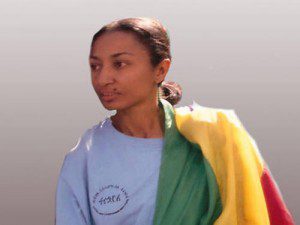4 May 2013 | Politics and Society, United Nations
The four international freedom of expression rapporteurs kicked things off by launching a joint declaration encouraging states to safeguard freedom of expression against commercial and political interests during the global transition from analogue to digital terrestrial broadcasting, Brian Pellot reports from UNESCO’s 20th annual World Press Freedom Day conference.

© IWMFEthiopian journalist Reeyot Alemu wins 2013 UNESCO-Guillermo Cano World Press Freedom Prize
(more…)
2 May 2013 | Middle East and North Africa
More than two years after mass protests in Egypt demanding “freedom” among other things, the media in Egypt, post revolution, is a lot more vibrant and freer than it was under toppled President Hosni Mubarak. But it is a sensational, tabloid and segmented media, reflecting the deep polarization in the country, Shahira Amin reports.
(more…)
2 May 2013 | Europe and Central Asia
The European Union on World Press Freedom Day should be celebrating continuing press freedom across its member states and championing press freedom abroad. But instead today there is less to celebrate and more cause for deep concern that the EU is failing to protect this core element of its democracies, Index on Censorship CEO Kirsty Hughes writes.
(more…)
1 May 2013 | Newswire
Preliminary research from a survey of nearly 10,000 Arab respondents has found that while most support the right to free expression online, they are apt to believe that the internet should be regulated, according to the researchers.
The survey — a joint effort between researchers at the Qatar campus of the US-based Northwestern University and the World Internet Project — explored media usage in the Arab world. Participants were drawn from eight Arab nations: Egypt, Tunisia, Bahrain, Qatar, Saudi Arabia, Jordan, Lebanon and the United Arab Emirates.
The survey questioned participants’ perceptions of the news media, finding that 61 per cent thought the “quality of news reporting in the Arab world has improved over the past two years.” Media credibility declined in countries that experienced revolutions during the Arab Spring. The Saudi Arabian respondents gave their media outlets high marks with 71 [per cent agreeing with the statement, “The media in your country can report the news independently without interference from officials”.
Overall, the survey found high Facebook penetration among respondents who used social media. Ninety-four percent of the social media users had Facebook accounts, 47 per cent used Twitter and 40 per cent used Facebook. Among the Bahrain social media users, 92 per cent had a Facebook account, while just 29 per cent of the Egyptian respondents did.
The survey aimed to assess the use of media — TV, radio, newspapers, books, web — and levels of trust respondents had toward the sources. It also sought to guage how the respondents used the internet to communicate and conduct transactions like banking or purchases.
The results can be accessed at Arab Media Use Study.

